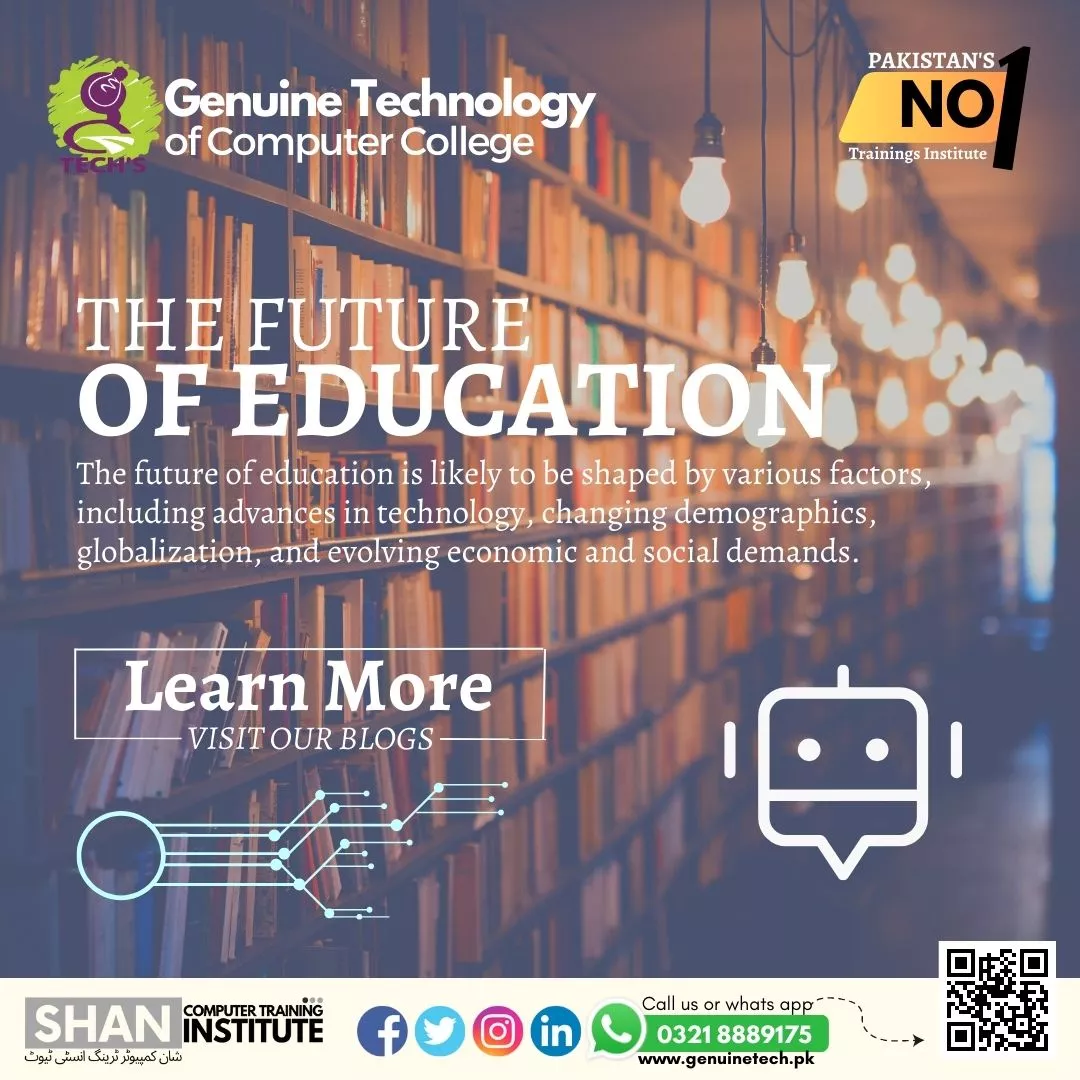The College > Blog > The Future of education - Genuine Technology
The Future of education - Genuine Technology
What is the future of education essay? - Shan Training
Computer Courses or Computer skills plays an important role in the future of Education and it is important to adapt according to technology advancement and changes in the world work For the youth of nation it is necessary to learn high in demand computer courses to survive or compete in the job market the future of education is in learning the top computer course from basic to pro level these course may include;
- Computer Foundation Courses
- Computer Software & Hardware
- Computer IT Course
- Full Stack Development
- Graphic Designing
- Digital Media Marketing
- Social Media Marketing
- SEO Expert Course
- AutoCAD Course
- Urdu Typing Course
- English Typing Course
Genuine Tech is the No1 Computer Training Institute in Pakistan from where you can learn these high in demand computer courses individually by working on real-world tasks and assignments under the supervision of their Expert Instructors, Trainers. Computer Courses after FA is the best option for candidate as our future of education is depend on them so it is responsibility of every student to enhance their skills and serve the nation in their progress and development.
We can say the future of learning may involve many enhancements which may empower the students for developing new skills and it is based on three factors lifelong learning, global understanding and social responsibility or it may focus on practical working. Genuine Tech is the Top Computer College which plays an important role in the career or skill development of Youth our goal is to provide quality Education or polish our students by providing best training courses for web development courses after that we recommend seo expert courses than digital media marketing to become them independent so they can earn money by working at anywhere at any time.
From edu.google.com you can get more detail about future of education.







